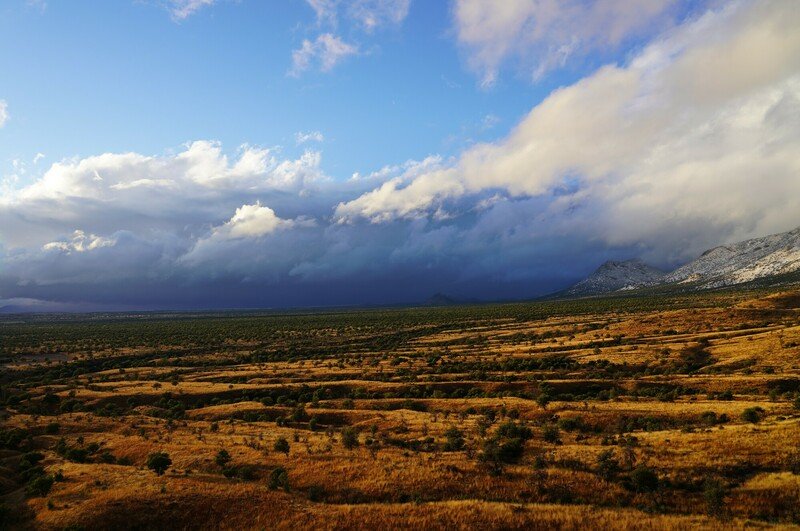For Immediate Release, July 9, 2025
|
Contact: |
Jean Su, Center for Biological Diversity, (415) 770-3187, [email protected] |
Lawsuit Challenges Trump Administration’s New Arizona Border Wall Waivers
TUCSON, Ariz.— Conservation groups sued the Trump administration today for unconstitutionally waiving dozens of environmental laws to speed border wall construction through the San Rafael Valley in Arizona’s Sky Island region, a biodiversity hotspot that includes the most significant wildlife corridor remaining along the Arizona-Mexico border.
The planned 27-mile border wall would block migration for dozens of imperiled species — including federally endangered jaguars and ocelots, as well as black bears, pronghorns and mountain lions — who roam freely between Arizona and the Mexican state of Sonora to find mates, prey and safety, according to a recent Center for Biological Diversity report.
“The Trump administration is unconstitutionally running roughshod over our bedrock environmental protections to build his cruel, senseless border wall. A 30-foot wall will stop majestic jaguars and other endangered animals dead in their tracks, so they’ll likely disappear from the U.S.,” said Jean Su, a senior attorney at the Center for Biological Diversity. “Trump’s dangerous obsession with walls and militarization will slash a permanent scar across one of the most biodiverse regions on the continent. We’re suing to stop Trump’s reckless abuse of power and prevent bulldozers from destroying this spectacular Sky Islands region and the animals who depend on it.”
Today’s lawsuit, filed in U.S. District Court in Tucson, says the Department of Homeland Security lacks authority to waive the Endangered Species Act, the National Environmental Policy Act or other laws that protect clean air, clean water, public lands, wildlife and communities in the borderlands. The lawsuit says the waiver authority is an unconstitutional delegation of power to the department.
In addition to a 30-foot-tall steel bollard wall, the waivers also allow bulldozing roads and installing surveillance equipment, lighting and other infrastructure — all without environmental review. The wall and its infrastructure would cut across the Arizona National Scenic Trail near the Coronado National Memorial and twice cross the Santa Cruz River.
The area is within known jaguar habitat. In recent years wild jaguars have been spotted on remote cameras moving through the San Rafael Valley. The closure of that route could lead jaguars to disappear completely from the United States.
“Arizona’s San Rafeal Valley region is the only location left in the entire United States that still has both wild jaguars and ocelots roaming free. The fact this precious and pristine natural area is proposed to be permanently severed is reprehensible. We owe it to future generations to preserve this vital part of America’s ecological and cultural heritage,” said Dr. Aletris Neils, executive director of Conservation CATalyst. “Such a cataclysmic barrier will have catastrophic and cascading consequences that scientifically we can only begin to fathom.”
In addition to jaguars, dozens of rare wildlife species make their home in this remote region, including ocelots and pronghorns, and hundreds of species of migratory birds and butterflies. There is no evidence of frequent human migration in the area.
North Dakota-based Fisher Sand and Gravel won the $309 million border-wall contract. The company has collected thousands of environmental violations over the years, including from Arizona state and county regulators, and paid millions in penalties.
Beyond jeopardizing wildlife, endangered species and public lands, the U.S.-Mexico border wall is part of a larger strategy of ongoing border militarization that damages human rights, civil liberties, native lands, local businesses and international relations. The border wall impedes the natural migrations of people and wildlife that are essential to healthy diversity.

The Center for Biological Diversity is a national, nonprofit conservation organization with more than 1.8 million members and online activists dedicated to the protection of endangered species and wild places.

